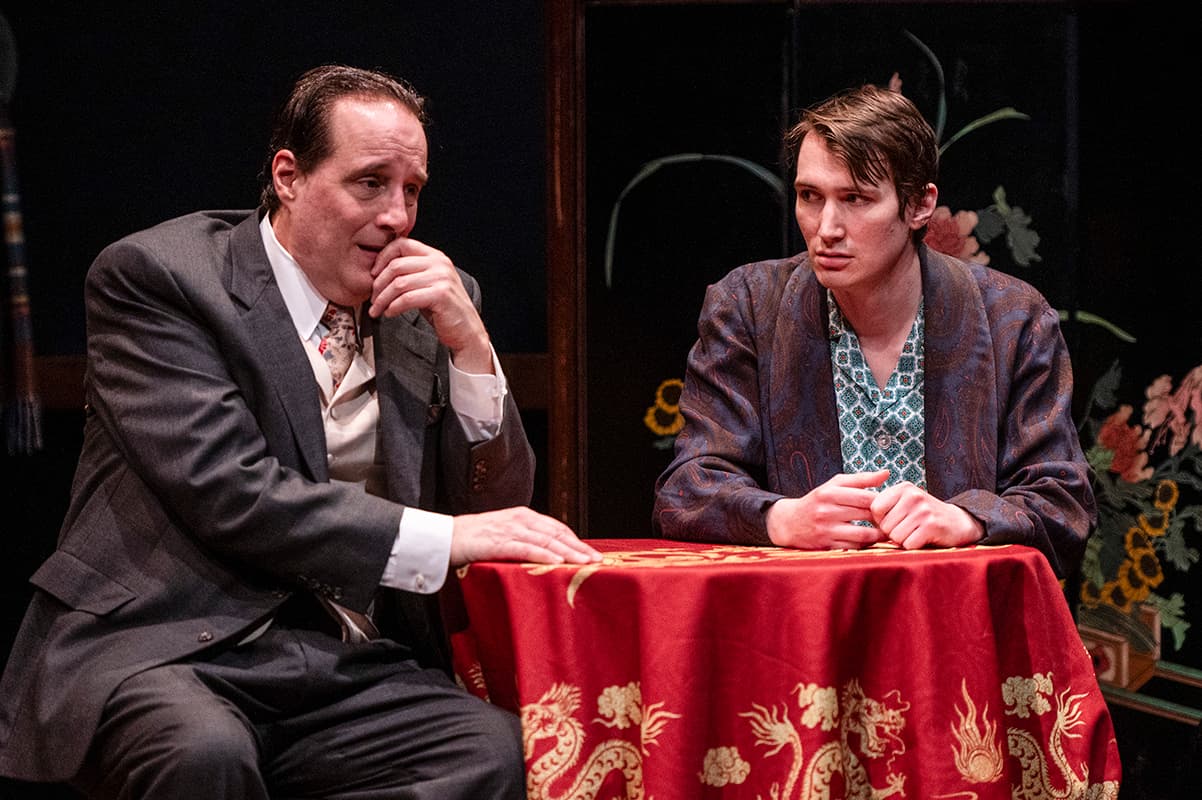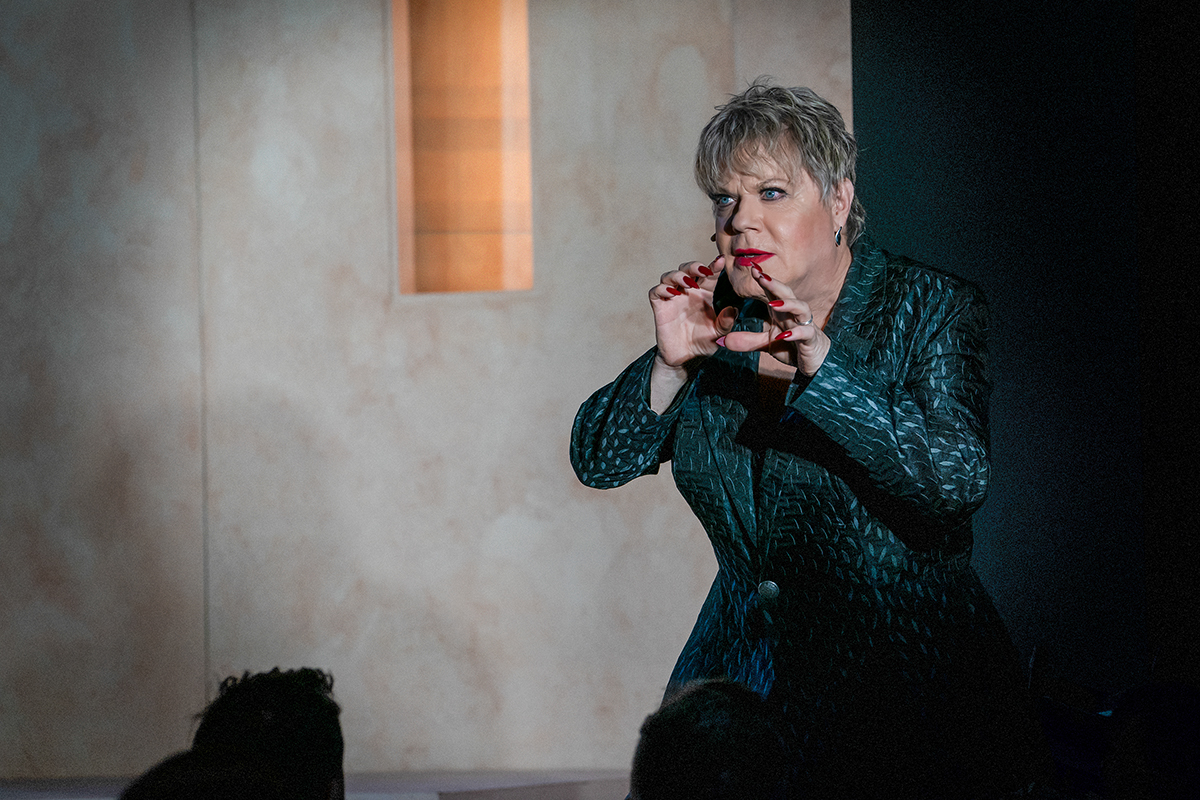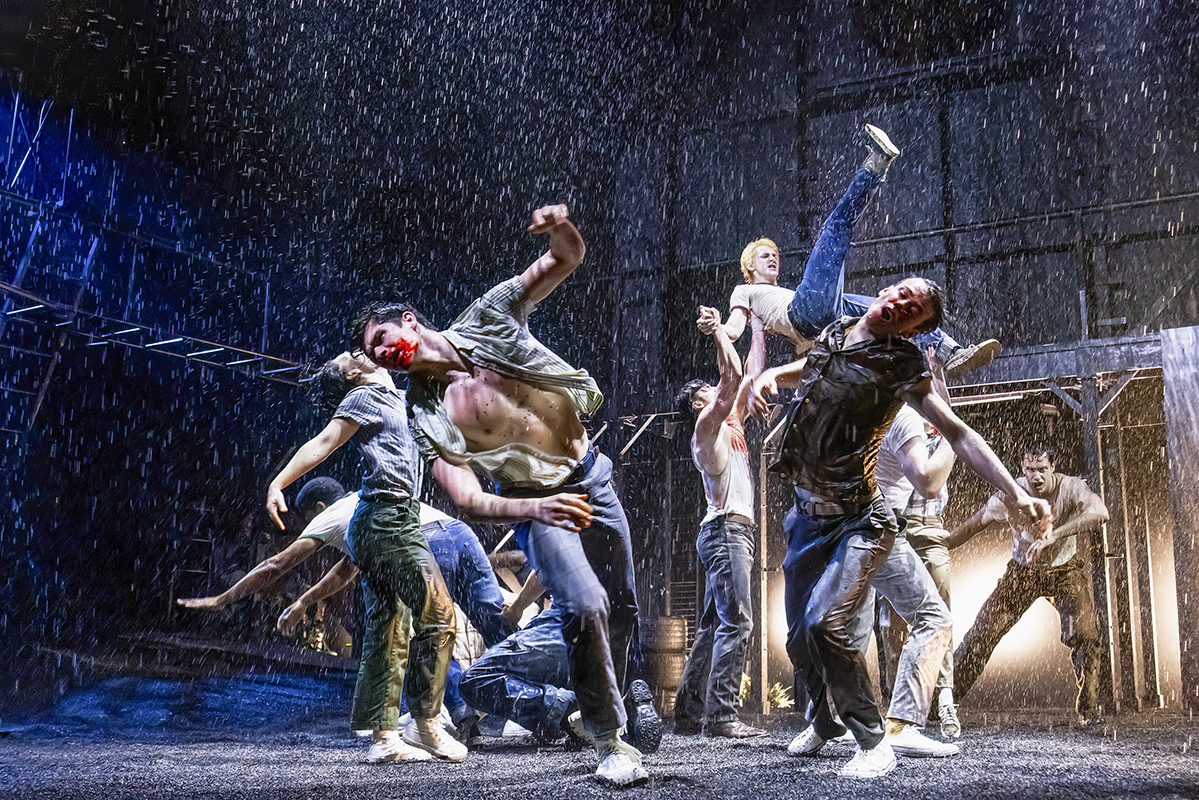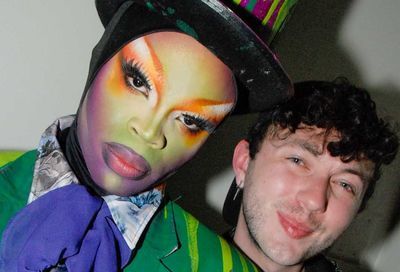‘Till’ Review: All-American Tragedy
Mosaic stages an outstanding production of 'The Till Trilogy,' Ifa Bayeza's powerful account of the life and death of Emmett Till.

An impressive undertaking years in the making, Mosaic’s repertory production of the three plays comprising Ifa Bayeza’s The Till Trilogy turns out to be well worth the wait.
And, while director Talvin Wilks and the creative team merit kudos for their work in mounting The Ballad of Emmett Till (★★★★☆), That Summer in Sumner (★★★☆☆), and Benevolence (★★★★☆) for a month-and-a-half rotation in Mosaic’s Sprenger Theatre, the company of actors are the true champions in this epic crusade.
Performing multiple roles in each play, let alone their various roles across the three different plays, the 10-actor ensemble, together and individually, achieve something amazing simply to memorize it all.
But to see them perform one play after the other over three successive nights is to recognize the artistry, vigor, and stamina they each bring to the task. None do so more brilliantly than Antonio Michael Woodard, portraying 14-year old Emmett Louis Till in The Ballad of Emmett Till.
The first play written in the trilogy — and the installment best to start with if you’re seeing all three — Ballad invites the audience to know the life that was taken in late-August of 1955, when Emmett Till, visiting Mississippi from Chicago, was abducted in the night from his uncle’s home near Money, Mississippi, and brutally murdered.

As the entire trilogy examines the meaning and impact of how Emmett suffered and died, Ballad focuses on how he lived. For those who’ve known him only as an enduring symbol of the Civil Rights Movement and of Black trauma, the show fleshes out a young person with wit and a winning personality.
A stutterer since suffering a bout of polio at six, Emmett, known to family and friends as Bo, calls himself ‘Bobo,’ and despite any challenges he’s faced, he’s a joyful, buoyantly confident lad.
Styling in Emmett’s smart suit and straw fedora, Woodard exudes the innocent, mischievous charm of a lovable 1950s kid, blissfully unsuspecting of what cruel fate awaits him.
Woodard’s performance doesn’t foreshadow Emmett’s end, but taps into his present-tense being, the joie de vivre that keeps him dancing like a hummingbird from one beat to the next, never still.

Bayeza filters Emmett’s voice — and those of his family, including loving mother Mamie (Billie Krishawn) and grandma Mamoo (Rolonda Watts) — not only through dialogue, but through poetry, chants, and field songs. In every step and verse, the six actors who take on all the roles in Ballad stay connected.
“They tried to break his body, but they couldn’t break his will,” the ensemble sings, calling forth hundreds of years of history in the Deep South.
Emmett returns, but predominantly as a figure inhabiting flashbacks and visions, in That Summer in Sumner (making its world premiere), which follows three Black journalists investigating the events surrounding the boy’s death.
His memory lives powerfully in Mamie Till-Bradley, whose tragic but heroic journey in Sumner comes sharply into focus via Krishawn’s penetrating performance as the grieving mother stirred into action on behalf of her son and her community.
Mamie’s slow, resolute walk past reporters and protesters into the Mississippi courthouse where she prays she’ll find justice for Emmett constitutes a beautifully executed joint effort of direction, performance, lighting, and design.
The more expansive Sumner incorporates video projection, and surreal elements, like Emmett in the beyond hosting a satirical variety show. In general, the installment feels over-encumbered with theatrical business, with the actors constantly rearranging the set and furniture to transition between scenes and locales.
Sumner‘s full cast of ten, including Anna DiGiovanni, spikily compelling as Caroline Bryant, the woman whose false accusation led to murder, is as on-point as in Ballad or Benevolence, but Sumner doesn’t quake with the same forceful purpose.
Benevolence arrives at moving, pointed payoffs in both acts of its suspenseful portrait of two different couples involved in, or impacted by the killing of Emmett Till.
That satisfaction comes despite the play taking almost a frustrating amount of time to connect the dots defining the relevance of each couple’s domestic squabbles to the larger story of all-American injustice.

What we might learn spending time with Caroline Bryant (DiGiovanni) and her husband Roy (Scott Ward Abernethy), one of the men who killed Emmett, or with bickering pair Clinton Melton (a wonderful Vaughn Ryan Midder) and wife Beulah (Krishawn) remains vague, until realization rushes in like a wave.
Wilks maintains a steady hand steering the entire trilogy towards Bayeza’s dramatic epiphanies, and insights on race, class, truth, and justice. And without naming names like Ahmaud Arbery or Breonna Taylor, the plays acknowledge that this past isn’t buried, and justice still is far from promised.
The Till Trilogy runs through Nov. 20 at the Atlas Performing Arts Center, 1333 H St. NE.
Tickets are $50 to $64, with economy ticket options for each performance.
Visit www.mosaictheater.org or call 202-399-7993, x2.
Support Metro Weekly’s Journalism
These are challenging times for news organizations. And yet it’s crucial we stay active and provide vital resources and information to both our local readers and the world. So won’t you please take a moment and consider supporting Metro Weekly with a membership? For as little as $5 a month, you can help ensure Metro Weekly magazine and MetroWeekly.com remain free, viable resources as we provide the best, most diverse, culturally-resonant LGBTQ coverage in both the D.C. region and around the world. Memberships come with exclusive perks and discounts, your own personal digital delivery of each week’s magazine (and an archive), access to our Member's Lounge when it launches this fall, and exclusive members-only items like Metro Weekly Membership Mugs and Tote Bags! Check out all our membership levels here and please join us today!

























